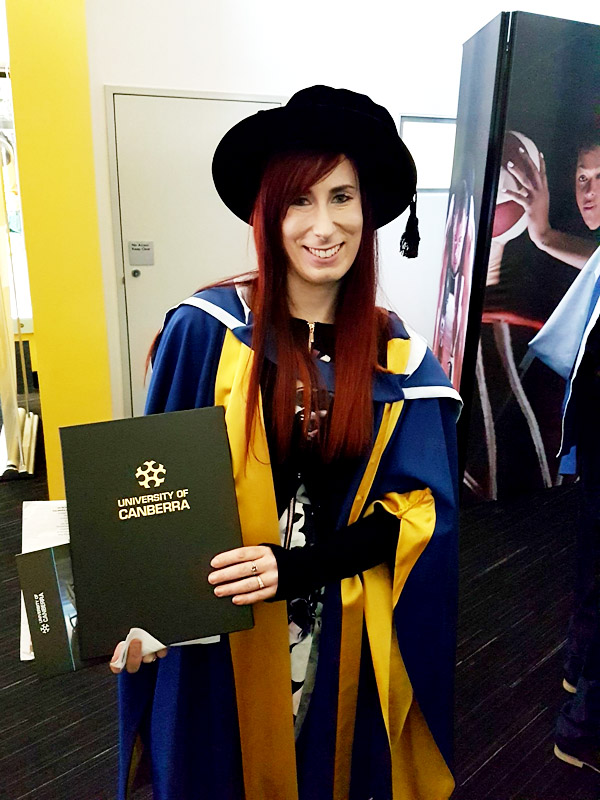Antony Perry
28 September 2016: If undertaken early, education and intervention programs can reduce some of the associated risks with delinquency and problem drinking among young Australians, according to research by a University of Canberra Doctor of Philosophy graduate.
Angela Curcio says delinquency and problem drinking were two of the most prevalent risk-taking behaviours Australian teenagers engage in.
The effect they are having on youth as young as 13, was the driving force behind her PhD, which identified a number of measures that could potentially address the problem.
“Risks associated with personal control, social control, and social learning factors can potentially be improved through education, policy and intervention programs prior to the development of risk-taking behaviours in adolescence and young adulthood,” Dr Curcio said.
Dr Curcio’s research included developing a 30-item adolescent self-report delinquency scale measuring contemporary and prevalent delinquent activities. It also established a 56-item checklist to assist clinical assessment and treatment evaluation.
“The scale can be used as a research instrument in educational, counselling and rehabilitations settings, and may assist in evaluating different theories of delinquency,” she said.
“[The checklist] provides prompts to delve into specific areas of clinical interest and can help gauge frequency, severity, recidivism and treatment prospects.”
Dr Curcio’s work has paved the way for further research to be undertaken in this area.
“Future investigations could explore whether the revised psychosocial control theory could be extended to explain other health compromising behaviours, such as gambling, sexual promiscuity and illicit drug use, and could examine the suitability of the revised model among Australian-wide and international samples.”
Her interest in helping children extends beyond her research. She is currently working at Melaleuca Place – an ACT government initiative that provides assessment and intervention services for children and families who have experienced complex trauma.
Dr Curcio, who has been a lecturer and tutor at the University, as well as an alumna having graduated with a Bachelor of Science in Psychology (Honours) in 2010, said her time spent at the University had prepared her well for her professional life.
“During the clinical component of my PhD, I learnt and practised evidence-based treatments under the supervision of highly regarded clinicians and academics,” she said.
“I was lucky to work with an amazing team of academics. Their knowledge and commitment to the field of psychology, and to my research, played a large role in my success.”
Read about more of our recent graduates:
Dame Quentin delighted by UC award
Exchanges add to UC degree for Stella



